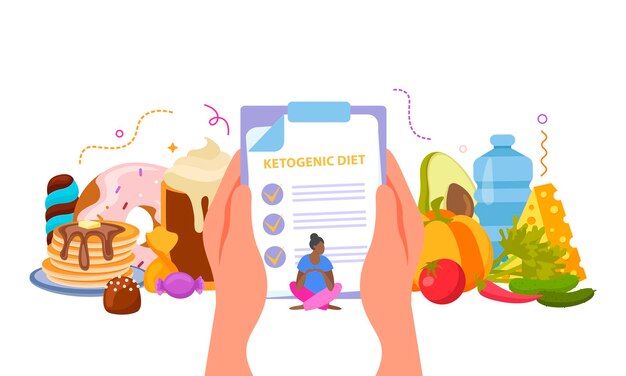
Food plays a crucial role in our lives, giving us the energy to go about our day-to-day activities. When considering our health, the quality and amount of food we consume are vital. Eating the right kind of food in the right amounts is essential to maintain a healthy balance, preventing the diet from taking over our lives.
It’s natural to crave delicious foods, but indulging without thinking can lead to health issues like obesity. Both overeating and undereating can be harmful; overeating can cause rapid weight gain, while undereating can lead to being underweight and more prone to illness. Misunderstanding the nutritional value and calorie content of food can result in poor dietary choices, which can influence your mind negatively.
When dealing with food, remember it includes everything from healthy options to processed and junk foods. While some taste amazing, they aren’t always beneficial for health. Ignoring healthy eating can lead to a range of health issues. Here are some practical tips to help you stay on track with a healthy diet:
1. **Eat Slowly**: Taking your time when eating can prevent overeating. Chewing your food slowly sends signals to your brain that your stomach is full, reducing the likelihood of overindulging.
2. **Drink Water Before and During Meals**: Drinking water hydrates your body and can help manage hunger. Try having a couple of glasses before meals and sip during eating to help control your appetite.
3. **Stay Away from Tempting Foods**: Unhealthy snacks like candy and chips are hard to resist. Stay away from places where these are easily accessible and ask friends and family to support you by not having these items in sight.
4. **Carry Fruits and Nuts**: Keeping healthy snacks like fruits and nuts handy can prevent unhealthy snacking. They help keep your stomach satisfied between meals, curbing the urge to reach for junk food.
5. **Count Your Calorie Intake**: Pay attention to what you eat throughout the day and track your caloric intake. This helps you make informed choices about cutting back on high-calorie foods.
6. **Include Protein-Rich Meals**: Eating proteins keeps you full longer and regulates appetite. Focus on lean proteins like tofu, soy, fish, and shellfish rather than high-fat options.
7. **Exercise Daily**: Regular exercise burns extra calories and helps control hunger. Cardio workouts can boost metabolism and prevent fat buildup, reducing the risk of obesity and related diseases.
8. **Don’t Eat Unnecessarily**: Avoid sticking to fixed meal times if you’re not hungry. Only eat when you feel hungry, keeping overeating at bay.
9. **Occasional Snack Treats**: Treat yourself occasionally with your favorite snacks. Plan these treats wisely to prevent daily indulgence.
**Health Risks of Poor Eating Habits:**
– **Cardiovascular Diseases**: Bad eating habits can lead to excessive body fat, affecting heart health and circulation, potentially leading to heart attacks or strokes.
– **Obesity**: Uncontrolled eating habits lead to weight gain and obesity, increasing the risk of other health issues like high cholesterol, high blood pressure, and diabetes.
– **Diabetes**: Poor dietary habits can lead to diabetes, a lifelong condition where blood sugar levels fluctuate. Adjusting your diet can help manage this disease.
– **Depression and Anxiety**: Nutritional deficiencies can impact mental health, leading to depression and anxiety. A balanced diet can help manage these conditions to some extent.
To foster a healthy and disease-free life, take control of your diet rather than letting it control you.